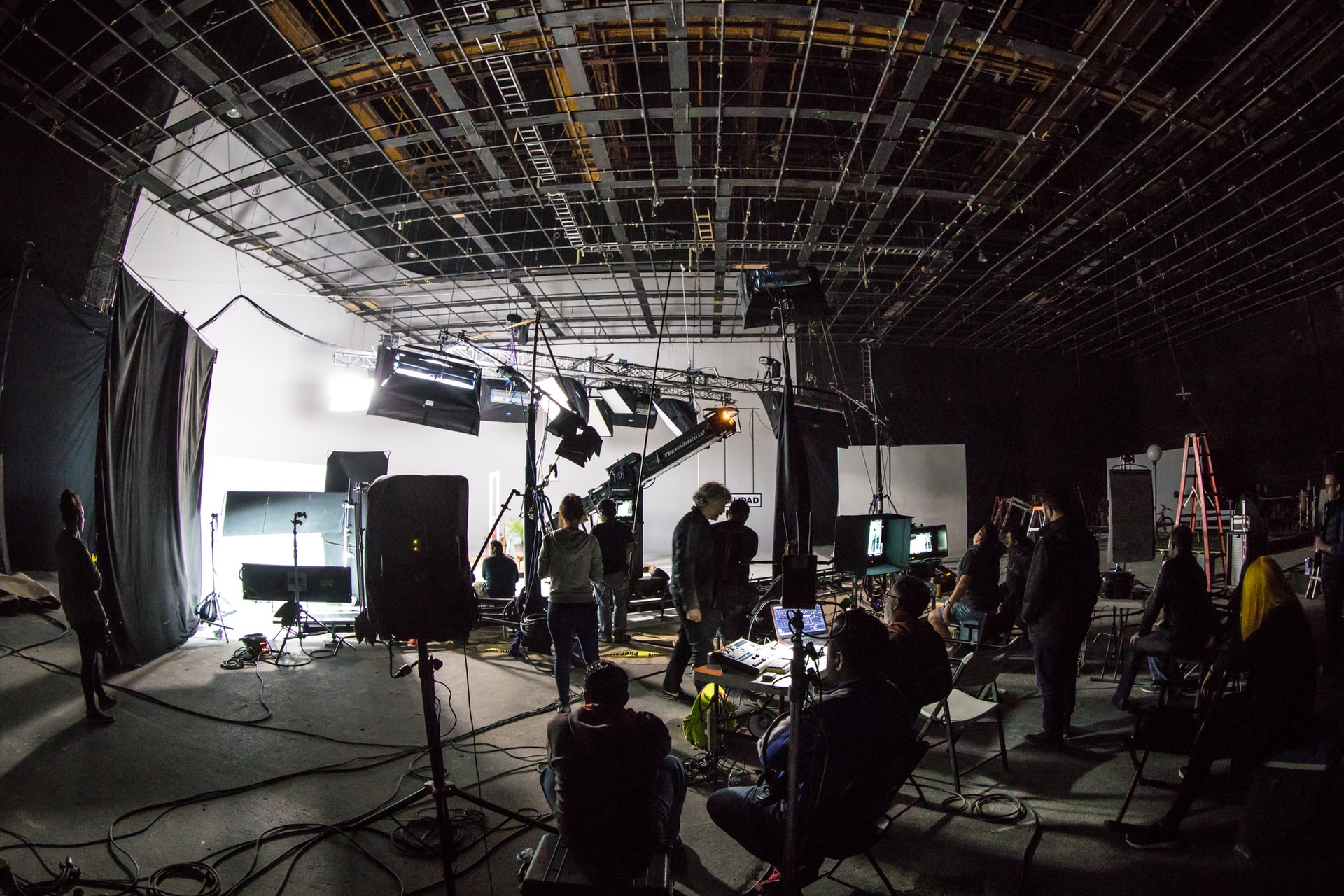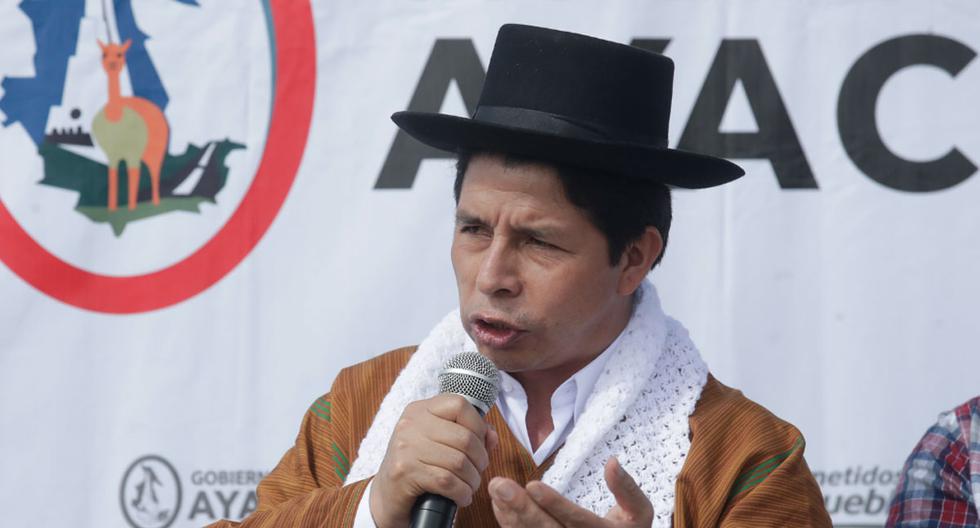
The government of Luis Lacalle Pou proposed in its most recent Rendering of Accounts (still to be voted on in Parliament) the creation of the Uruguayan Audiovisual National Agency (ANUA), which will operate under the auspices of the Ministry of Industry, Energy and Mining (MIEM) .
From the moment this entity begins to exist, all legal and regulatory references to the Uruguayan Film and Audiovisual Institute (ICAU) will be understood, where relevant, to ANUA.
In the surrender it is read, in its article 389, that the agency will have a Board of Directors made up of a delegate from the MIEM, one from the Ministry of Education and Culture (MEC) and one from the Ministry of Economy and Finance (MEF), all designated by the Executive Branch.
The following article establishes that ANUA will be managed by an executive secretary, of a paid nature, who will be appointed by the Board of Directors, from among people “of well-known suitability and remarkable career” for the position.
In the following articles, various attributions of the brand new ANUA fall, such as promotion, coordination and development of plans and programs to support the development policies of the audiovisual industry, encourage and encourage the production, co-production, distribution and exhibition of audiovisual works and projects , and other tasks that, until now, the ICAU had.
Basically, the Rendering of Accounts repeals almost all the articles of the 2008 Film Law, which created precisely the ICAU, as well as the Uruguayan Film Development Fund, something that has aroused criticism, rejection and doubts in actors in the industry.
Diego ‘Parker’ Fernández, film director, believes that the sector is currently in a relatively healthy state, “we have to be happy because 20 years ago no film was released, and now there is a sustained production of its own, a culture and very diverse.
“Another leg that has moved quite a bit, thanks to the management and certain support that has been given, which is an explosion of a certain type of work; We are in a good moment and understanding that, yes, the institutional design that came from 2008 was becoming somewhat anachronistic, and that we do agree that modifications had to be made (…) but we have to see the form” of those modifications, he commented. Fernandez in an interview in Del Sol FM.
The producer Santiago López also believes that there was a sustained growth in production, initiated with the private sector, but that it became a State policy by transferring the institutional efforts of one government to another, with its successive strengthening. And that, in the meantime, there were attractions for companies from abroad to come to film in Uruguay, which has to do, for example, with a local market with a good workforce, and with other issues such as funds for co-productions and the incentives to film here with tax facilities.
Last year, López recalls, the contents that were shot in Uruguay represented an export of more than 60 million dollars, including both local and foreign series and movies.
‘Parker’ believes that “it is true that the law is more than 10 years old” and that it has to be modernized to include in its ecosystem, for example, the appearance of streaming platforms -which did not exist in 2008-, but that “it does not this is how it should be done, alluding to the change in surrender. “There is an almost mercantilist vision of product, export and industry that scares me a little. Things can be changed and improved, but not in this way. The conceptual part that is culture is missing,” Fernández explained.
The director of the Uruguayan Cinematheque, María José Santacreu, has doubts regarding the reasons for the proposal and its implications in the medium. “The disappearance of the Film Institute is at first glance a bad sign, among other things, because it reveals a very limited conception of cinema if it is framed in a promotion agency or an industry,” said the professional consulted by Montevideo Portal. For her, the signs of this are “alarming due to the way this article was prepared, without contacting many actors who make cinema a vast and complex phenomenon”.
“Where can, for example, the attention to issues such as the preservation of the cinema, the training of spectators, the distribution of a non-industrial cinema, teaching, the history of cinematographic art, the exhibition of a cinema Different from the one found in the commercial circuit, the festivals, all of these issues that concern Cinemateca, if the interlocutor is an agency linked to the promotion of an industry?” asks Santacreu.
The Directors, Directors and Scriptwriters of Uruguay (DGU) association held an assembly at the beginning of July and a document emerged from that instance in which they “emphatically rejected the articles of the Rendering of Accounts related to the modification of the current Law of Cinema and Audiovisual, as well as the project to create a new institutional framework for the sector without the participation or dialogue of all those involved”. They affirm that the new regulations “do not guarantee the definitions, objectives, rights or funds that currently exist in the Film and Audiovisual Law” and that they aspire to maintain, and assure that the projected changes put “the continuity of national cinema at risk.”
By eliminating almost all the articles of the Film Law (voted unanimously by the Parliament at that time) “the purpose of the Cinematographic and Audiovisual Development Fund is modified” and the annual update of said Fund is repealed, with the consequence that “The meager funds granted by law not only have an indefinite destination now, but also deteriorate year after year.”
They highlighted the absence in the articles of concepts such as “work”, “creators”, “cinema”, “culture”, which are overshadowed by a more general phrase that is repeated several times, “the audiovisual”, “Without making references to the creators or authors of the works.
understand that this way of referring to the material as “the audiovisual” exposes “a conception where the industrial prevails over the cultural”.

A positive change, insufficient wording
The Association of Producers and Filmmakers of Uruguay (ASOPROD) issued a statement on Monday in which they understand that the creation of ANUA can be “positive”, and that it can be a good response to the growth that the national sector has had since that the ICAU exists.
“However, fundamental concepts, definitions and guarantees that have allowed the development of a national film industry and the growth of the sector and its actors should not be dispensed with; that if this change is not incorporated, this change will be negative for the entire sector and it will be a setback,” says the statement.
The wording of the articles that create the ANUAcontinues ASOPROD, “has
very vague definitions as to its scope, responsibilities and
operation” while “does not contemplate all the phases of an audiovisual project,
from development to exhibition, internationalization and conservation”.
With all this scenario, the ANUA would not have a base of definitions about what is a national work, who are the creators, what are the stages of an audiovisual project, what is the sovereignty of the national cinematography and the responsibility of the State in the development of this cultural activity.
They recall that the Film Law was a “fundamental basis of public policy for the country’s film and audiovisual industry and is, in part, the explanation for the development that the sector has experienced.”
For this reason, they see as something transcendental that central elements, inherited from the ICAU, be preserved in order to build the new ANUA: that the agency be kept in the orbit of the MEC and that it not pass under the umbrella of the MIEM, something that was confirmed in an interview with In perspective to the national director of Culture, Mariana Weinstein. “I am in a position to say that the three ministries agreed, and that it will remain in the orbit of the MEC,” commented the hierarch, who pointed out that the wording is not precise in this. “Where it says ‘Ministry of Industry’ it should say ‘Ministry of Education and Culture,’” she continued.
For her, changes to the institutional framework are necessary “to better coordinate the cinema and audiovisual ecosystem (…) and the fact that it has entered accountability is an opportunity to move forward.” “Changes generate resistance, but you have to see the opportunity that this represents,” she added.
In summary, Weinstein believes that ANUA centralizes the audiovisual industry and is a place for interministerial communication between the MEC, MEF and MIEM, for a better development of the activities included.
In the name of ANUA the word “cinema” disappears, something that Weinstein justifies with the reinforcement of the concept of “Uruguay Audiovisual”, which seeks to simplify the name of the agency, “for the cinema it is included in the audiovisual activity”.
ideas to improve
The ASOPROD proposal, to improve the creation of the ANUA and its respective articles, contains the following points:
1 – Incorporate the objectives, tasks and definitions that appear in Law 18,284, in particular articles 2 and 10, and those of the decree that regulates it (Decree No. 473/008).
two – Maintain the definition of cinematographic and audiovisual work as found in Article 10 of Law 18,284: “Cinematographic and audiovisual activities shall be understood as those that are expressed in a creative and productive process of moving images on any medium and of any duration. , intended to be disseminated and communicated by any means known or that may be created in the future”.
3 – That the Agency’s Board of Directors be made up of two representatives of the most representative associations of producers and filmmakers in the film industry.
4 – Maintain the Film Promotion Fund and its operation, as it exists today, guaranteeing its annual allocation, its indexation adjustment mechanism, its maximum percentage of ANUA’s operating expenses, as established in the Law 18,284, Art.7, Section A.
5 – Guarantee universal access to funds, as well as freedom of expression and cultural diversity. In the same sense, ensure the necessary policies so that this access is equitable.
6 – Maintain the current institutional links of INCAU with regard to its international commitments such as Ibermedia and other organizations and institutions in the sector.
7 – Prioritize the creation of national works due to their cultural nature and intellectual property export potential, creating the right conditions for directors, screenwriters and producers to carry out their activity.
ASOPROD proposal for the creation of the ANUA by LARED21 on Scribd







